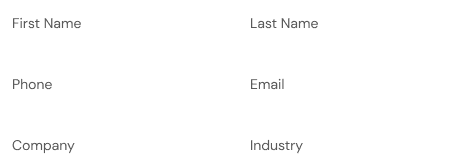
What is Tall Poppy Syndrome? We explore the concerning trend that’s affecting 90% of women at work
In an ideal world, ambitious and talented women would be commended and celebrated for their triumphs in the workplace. But, according to concerning new findings from Women of Influence, there is an ever-present phenomenon that’s doing exactly the opposite. They call it Tall Poppy Syndrome.
Tall Poppy Syndrome is when women are attacked, resented, disliked, criticized, or cut down because of their achievements at work. And it’s no small issue, with almost 90% of female respondents having experienced it first-hand.
As you might imagine, if a person suffers from Tall Poppy Syndrome for long enough, they will - as Women of Influence puts it - burnout, check out, and ultimately leave. So, while the fight to find but also retain top talent rages on, why is so little being done to squash this culture of cutting down?
Where Tall Poppy Syndrome stems from
A company’s culture has a lot to do with its leadership. If business leaders foster a culture of support and recognition, their employees tend to follow suit. Interestingly, the Tallest Poppy study found that men in leadership positions were more likely to penalize or undermine women due to their success. With men having the lion’s share of leadership roles, you begin to see why this phenomenon is affecting so many women.
But it’s not just men. According to the study, women are more likely to cut down peers and colleagues than those below them. While this has less of a hierarchical, sexist impact, it does still add to a culture of shaming those who do well.
The impacts of being cut down
Having one's achievements downplayed, belittled or outright ignored can have detrimental effects on women’s mental health. Of the women surveyed, almost 90% (85.6%) indicated that their stress had increased because of Tall Poppy Syndrome, while 73.8% thought it harmed their mental health, and 66.2% cited lower self-confidence.
And, of course, it has hugely negative effects on the perpetrators, too. Tall Poppy Syndrome naturally encourages women to be less productive and successful, which spills over into the overall quality of the business. It’s self-sabotage from company leaders.
How can we uproot Tall Poppy Syndrome for good?
The best way to tackle Tall Poppy Syndrome is to:
- Call it out. And not only if it’s happening to you, but if you see someone else suffering
- Take stock of when it’s happening and by who
- Set a standard of celebrating people’s wins. Make it part of company culture to be happy for others
- Run anonymous surveys to see how present Tall Poppy Syndrome is within the company, and if it’s improving with time and training
- Show that belittling others in the workplace has consequences. Do more than just lip service to the problem.
At Remotify, we’re all about putting people first. We believe that happy employees produce better results. Better results produce happy employers. It’s a reciprocity cycle. If you want to find out how our services can inject some joy and passion into your teams, get in touch today.
Spending Too
Much Time
Onboarding?
your remote hiring in the
Philippines, excellently.
Say Goodbye to High Costs!
Request Your Free Consultation Today andSave a Massive 70% on Your Workforce!

Ready to thrive in a remote-first work environment?


